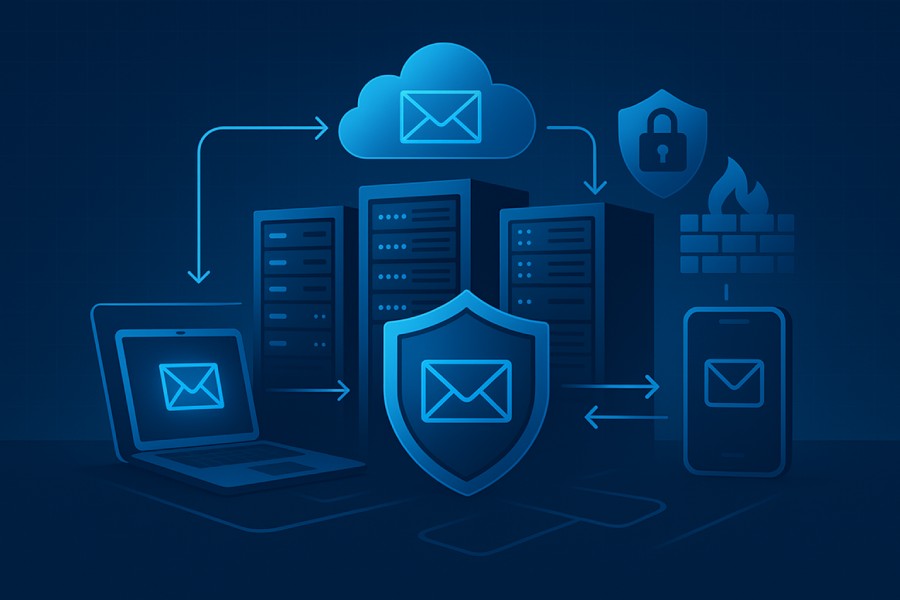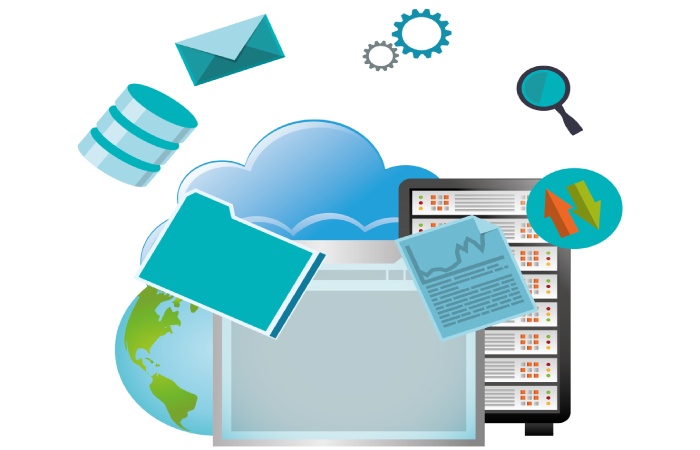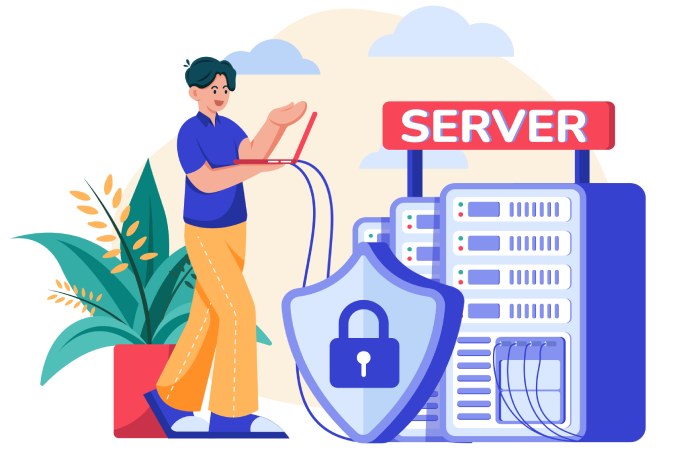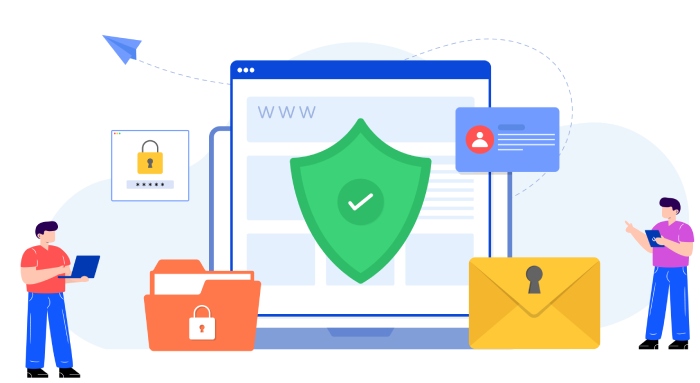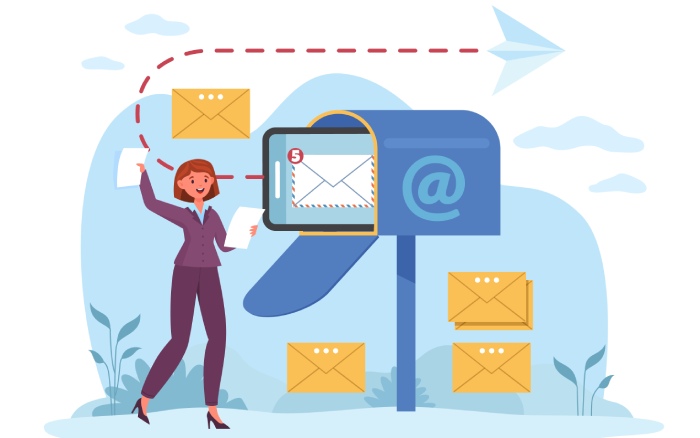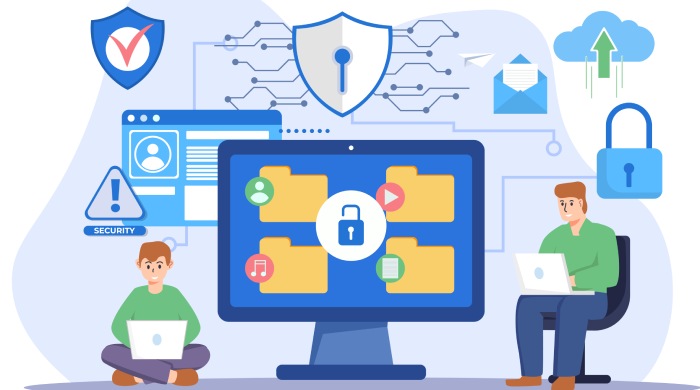Email server hosting is a vital component of modern organizational communication infrastructure, providing companies with the platforms necessary to send, receive, and store emails securely and efficiently. At its core, email hosting involves deploying mail servers that operate using standard email protocols such as SMTP (Simple Mail Transfer Protocol), IMAP (Internet Message Access Protocol), and POP3 (Post Office Protocol version 3). These protocols orchestrate the flow of messages between email clients and servers, ensuring timely delivery and synchronization across devices.
A mail server typically encompasses two key agents: the mail transfer agent (MTA), responsible for routing and transferring emails between servers, and the mail delivery agent (MDA), which handles the final delivery of messages into user mailboxes. For example, popular MTAs include Postfix and Exim, which are widely used for their reliability and configurability.
Organizations may opt for various deployment models when it comes to email hosting. These include dedicated email servers that are exclusively reserved for a single entity, ensuring maximum control and security, and shared email hosting, where multiple clients share resources on a single server to reduce costs. Increasingly, cloud email hosting is favored, leveraging cloud computing technologies to deliver scalable, managed email services through providers such as Google Workspace (Gmail), Microsoft Exchange (Microsoft 365), Zoho Mail, and Amazon WorkMail.
Domain email hosting enables organizations to maintain professional communications using customized email addresses aligned with their corporate domain, enhancing brand identity alongside security.
Key Benefits of Professional Email Server Hosting for Businesses
Professional email server hosting goes beyond basic email delivery to provide businesses with a comprehensive suite of advantages tailored to enterprise communication and security needs. From advanced security measures to seamless collaboration and maintenance, these services ensure reliability and efficiency at every level.
1. Enhanced Email Security
Advanced Authentication and Anti-Spam Measures
A pivotal benefit of professional email hosting is enhanced email security, achieved through advanced anti-spam solutions, intelligent email filtering, and robust authentication mechanisms such as DKIM (DomainKeys Identified Mail), SPF (Sender Policy Framework), and DMARC (Domain-based Message Authentication, Reporting, and Conformance).
Protection Against Cyber Threats
These security protocols play a crucial role in combating phishing, spoofing, and spam attacks, ensuring that sensitive corporate data and communications remain safeguarded from cyber threats.
2. Efficient Mailbox Management
Streamlined Email Storage and Backup
Another significant advantage is mailbox management, which facilitates efficient email storage, quota control, and email backup. This ensures that critical messages are securely preserved and can be easily retrieved when needed.
Reduced IT Workload
Managed email hosting services also take care of routine maintenance tasks such as server configuration, software updates, and IP address management, thereby relieving IT departments of operational burdens and minimizing potential downtime.
3. High Availability and Seamless Access
Guaranteed Uptime
Professional hosting providers typically guarantee high email uptime, which minimizes disruptions to daily business communications and enhances overall productivity.
Multi-Platform Compatibility
Compatibility with a variety of email clients and webmail interfaces allows seamless synchronization across devices, ensuring access whether through Outlook, Apple Mail, or browser-based interfaces.
4. Enhanced Collaboration Tools
Integrated Business Productivity Solutions
Many professional hosting platforms integrate with collaboration tools found in suites like Office 365 and Google Workspace. These tools enhance teamwork through features such as shared calendars, real-time document editing, and team communication hubs.
5. Bulk Email Hosting Capabilities
Reliable Marketing and Transactional Email Delivery
Bulk email hosting services, offered by providers such as SendGrid and Mailgun, enable organizations to send large volumes of marketing or transactional emails efficiently.
Improved Deliverability and Reputation
These platforms are designed to maintain high deliverability rates and protect sender reputation, ensuring that important messages consistently reach their intended recipients.
Common Security Threats to Organizational Email Systems
Email Security Threats and the Need for Robust Protection
Despite its ubiquity, email remains a prime target for cyber threats exploiting vulnerabilities inherent in email protocols and hosting configurations. Organizations that rely heavily on email communication must recognize these risks and implement proactive security measures to safeguard sensitive data and maintain operational efficiency.
Spam and Malware Infiltration
One of the most pervasive risks involves spam emails loaded with malicious links or attachments. These messages often serve as gateways for malware infections or data breaches. Comprehensive spam filtering and anti-spam solutions, such as those provided by Mimecast, are essential in identifying and blocking such threats before they reach users’ inboxes.
Phishing and Domain Spoofing
Phishing attacks are another major concern, as they impersonate trusted contacts to extract confidential information. Systems lacking proper DKIM (DomainKeys Identified Mail), SPF (Sender Policy Framework), and DMARC (Domain-based Message Authentication, Reporting, and Conformance) configurations are particularly susceptible. Without these authentication protocols, cybercriminals can easily forge email headers and launch convincing spoofing attempts, putting both organizations and clients at risk.
Man-in-the-Middle (MITM) Attacks
Man-in-the-middle attacks compromise email confidentiality by intercepting messages during transmission. This makes SSL/TLS encryption indispensable for secure communication between mail servers. Encrypting data in transit not only ensures privacy but also preserves data integrity against unauthorized tampering.
Denial-of-Service (DoS) Disruptions
Email services can also fall victim to Denial-of-Service (DoS) attacks targeting SMTP servers. Such disruptions can halt mail delivery, leading to severe productivity losses and communication breakdowns. Implementing rate-limiting, IP filtering, and redundancy strategies can help mitigate these risks.
Data Loss and Compliance Challenges
Inadequate email backup and archiving policies expose organizations to data loss, making it difficult to recover critical information after an incident. Furthermore, poor archiving practices can hinder compliance with data retention regulations and industry standards. Regular, automated backups and secure cloud archiving can ensure data preservation and quick recovery.
Inefficient Mailbox Management
Lastly, poor mailbox management and lack of synchronization can result in miscommunications, missed messages, and workflow inefficiencies. Maintaining organized mailboxes, setting storage limits, and ensuring seamless synchronization across devices are vital for smooth and secure communication.
By addressing these vulnerabilities through strong encryption, authentication protocols, and reliable backup systems, organizations can significantly strengthen their email infrastructure against evolving cyber threats.
How Professional Hosting Enhances Email Security Protocols
Professional email server hosting providers bolster security by deploying multi-layered protections leveraging state-of-the-art email protocols and encryption methods. For instance, managed services such as Intermedia or Rackspace Email implement enforced SSL/TLS for email sessions, ensuring all data transmitted between clients and servers remains encrypted and safeguarded against interception.
Authentication mechanisms including DKIM cryptographically sign outgoing messages, SPF verifies sender IP addresses, and DMARC provides policy enforcement and reporting, collectively mitigating risks of phishing and spoofing.
Spam filtering and email filtering solutions, often powered by artificial intelligence and heuristic analysis, dynamically identify and quarantine unwanted or malicious emails before they reach user inboxes. Companies like ProtonMail and FastMail specialize in high-grade email encryption, further enhancing data confidentiality.
Moreover, professional providers offer comprehensive email backup and email archiving services, enabling easy restoration and long-term storage of emails to comply with legal mandates and support forensic investigations if needed.
Cloud email hosting platforms provide added resilience through redundant virtual private servers (VPS) spread across multiple data centers, optimizing email uptime and disaster recovery capabilities.
Configuration of high-quality mail delivery agents ensures efficient routing and reduces email bounce rates, thereby improving email deliverability metrics critical to business communications.
Features to Look for in a Secure Email Server Hosting Provider
Selecting a secure email hosting provider necessitates evaluating several essential features aligned with organizational security needs and operational requirements:
- Robust Email Security Measures: Ensure the provider implements comprehensive email authentication protocols (DKIM, SPF, DMARC), SSL/TLS for email encryption, and advanced spam filtering powered by AI-based anti-spam solutions.
- Email Protocol Support: Confirm compatibility with common email protocols such as SMTP server for outgoing email, along with IMAP server and POP3 server support for synchronized and offline mail access respectively.
- Managed Email Hosting Services: Opt for vendors offering proactive email server configuration, IP address management, and continuous monitoring to maintain optimal email uptime and performance.
- Mailbox Management and Email Storage: Look for flexible email hosting plans with scalable email quota options, efficient email forwarding capabilities, and integrated email backup to guard against data loss.
- Email Client Compatibility and Webmail Access: The provider should support a wide array of email clients and offer a user-friendly webmail interface to accommodate diverse user preferences.
- Cloud Email Hosting with Collaboration Tools: Preference should be given to providers that integrate collaboration suites like Office 365 or Google Workspace, enhancing productivity with seamless email synchronization and team collaboration.
- Email Migration Support: Facilitating smooth transition from legacy systems is crucial when upgrading to a new mail server or hosting environment. Providers like Bluehost Email Hosting, GoDaddy Email Hosting, DreamHost Email, and Kerio Connect usually provide professional migration assistance.
- Bulk Email Hosting Capabilities: For organizations that engage in marketing campaigns or transactional messaging, the ability to handle high volumes without compromising deliverability is critical. Services such as Mailgun and SendGrid specialize in this domain.
By prioritizing these features, businesses can elevate their email infrastructure and significantly strengthen their email security posture, mitigating risks associated with evolving cyber threats while facilitating efficient, reliable communication channels.
Comparing Cloud-Based vs On-Premises Email Server Hosting Solutions
Choosing between cloud email hosting and on-premises email server solutions is a crucial decision for organizations seeking reliable and efficient business email hosting. Each option offers distinct advantages depending on an organization’s size, compliance needs, and IT capabilities.
1. Cloud Email Hosting
Modern, Scalable, and Managed
Cloud computing has revolutionized email hosting by offering scalable and managed environments such as Microsoft 365, Google Workspace (Gmail), and Amazon WorkMail. These platforms support key email protocols — SMTP, IMAP, and POP3 — along with webmail access and seamless synchronization across multiple devices.
Cost-Efficient and Reliable
Cloud-based email hosting reduces the need for physical infrastructure, effectively lowering capital expenditures. Providers ensure high email uptime through redundant servers, IP address management, and advanced anti-spam solutions like Mimecast and other filtering technologies.
Simplified Management and Collaboration
With cloud hosting, email migration, backup automation, and archiving become effortless. Many solutions integrate collaboration tools and Office 365 integration, supporting smooth mailbox management and improved email deliverability. This makes them highly attractive for small to medium-sized businesses and enterprises alike.
2. On-Premises Email Server Solutions
Greater Control and Customization
On-premises email servers — such as Microsoft Exchange, Kerio Connect, or SmarterMail — give organizations direct control over their mail environment. Administrators can manage email configurations, mail transfer agents, and delivery settings, while maintaining their own SSL/TLS encryption and content policies.
Higher Investment, Stronger Security
While offering more control, on-premises setups require significant investment in physical or virtual servers, skilled IT staff, and ongoing maintenance. However, they provide enhanced customization and security compliance, making them ideal for industries with strict regulatory requirements.
3. Shared Email Hosting
Cost-Effective for Basic Needs
Shared email hosting plans, commonly bundled with domain hosting from providers like Bluehost, GoDaddy, or DreamHost, cater to entry-level users. Though limited in email storage and mailbox management, they remain affordable options for startups and small businesses.
4. Making the Right Choice
The decision between cloud and on-premises email hosting ultimately depends on balancing security, control, and scalability.
- Choose cloud hosting for flexibility, reliability, and ease of use.
-
Opt for on-premises servers if you require maximum control and compliance oversight.
Each approach serves a distinct purpose in aligning email infrastructure with business goals and operational demands.
The Role of Encryption and Authentication in Email Security
Email security relies heavily on the implementation of robust encryption and authentication protocols.
Importance of Email Encryption
Encryption protocols such as SSL/TLS for email safeguard data both in transit and at rest, preventing unauthorized interception between mail transfer agents and SMTP servers. Leading providers like ProtonMail prioritize end-to-end email encryption, ensuring that sensitive communications remain confidential and protected from cyber threats.
Strengthening Trust with Email Authentication
Email authentication mechanisms—including DKIM (DomainKeys Identified Mail), SPF (Sender Policy Framework), and DMARC (Domain-based Message Authentication, Reporting & Conformance)—play a crucial role in validating sender legitimacy and defending against email spoofing.
These standards enhance email deliverability by verifying outbound emails, reducing the likelihood of messages being flagged as spam. Managed email hosting providers such as Rackspace Email and Intermedia integrate these authentication measures directly into their email server configurations for optimal security.
Enhancing Protection Through Filtering and Anti-Spam Solutions
The integration of advanced email filtering and anti-spam solutions—including tools from Mimecast and Mailgun—further fortifies organizational defenses. These systems detect phishing attempts, malicious attachments, and other threats, ensuring that business email hosting environments uphold both integrity and confidentiality.
Best Practices for Managing and Maintaining Your Hosted Email Server
Effective mailbox management and consistent email server administration are essential for maintaining optimal performance, reliability, and security. Regular email backups and archiving practices form the backbone of disaster recovery and ensure compliance with data retention policies.
Ensuring Business Continuity and Collaboration
Implementing automated email forwarding and synchronization protocols enhances business continuity and collaboration across platforms such as Google Workspace and Microsoft 365. These measures ensure seamless communication, even during server maintenance or migration.
Preventing Performance Issues and Blacklisting
Proper IP address management and continuous monitoring of email quota usage are vital to prevent blacklisting, reduce performance bottlenecks, and maintain server reliability. Regular audits of email server configurations—whether on a dedicated server running Postfix or Exim, or within a cloud environment—help keep systems updated and secure.
Maintaining Security and Compliance
Ongoing audits should include updating spam filtering rules, enforcing email authentication protocols such as DKIM, SPF, and DMARC, and verifying SSL/TLS certificates to ensure encrypted communication and compliance with security standards.
Optimizing Email Deliverability and Scalability
Strategic use of bulk email hosting services like SendGrid enables businesses to conduct large-scale marketing campaigns without compromising deliverability or damaging the server’s reputation.
Adapting to Evolving Technologies
Periodic email migration to updated hosting plans or modern cloud platforms allows organizations to leverage the latest cybersecurity innovations and enhance email client compatibility across multiple devices. This proactive approach ensures long-term efficiency, resilience, and adaptability in a constantly evolving digital landscape.
Case Studies: Organizations That Improved Security with Professional Hosting
Numerous enterprises have transitioned to professional email hosting services to enhance their email security posture. For instance, a mid-sized manufacturing firm migrated from an on-premises Microsoft Exchange server to Microsoft 365, leveraging cloud email hosting’s advanced spam filtering and integrated DKIM/SPF/DMARC to curb phishing attacks. This transition also improved email uptime and streamlined mailbox management.
Similarly, a financial services provider adopted managed email hosting services from Intermedia, benefiting from encrypted email transmission, robust email authentication, and real-time email backup solutions. This deployment helped meet regulatory compliance requirements and enhanced email deliverability by preventing spam classification through strict IP address management.
A healthcare organization partnered with Rackspace Email to integrate secure email forwarding and collaboration tools embedded within their domain email hosting plan, mitigating risks associated with legacy POP3 server setups and obsolete encryption standards.
Future Trends in Email Server Hosting and Security Innovations
- AI and machine learning are revolutionizing email security with smarter anti-spam and phishing detection.
- Machine learning algorithms analyze content, user behavior, and threat patterns for precise filtering.
- Decentralized email protocols and end-to-end encryption are rising in popularity due to growing privacy concerns.
- Privacy-focused providers like ProtonMail and FastMail offer zero-access encryption with standard email protocols (SMTP, IMAP, POP3).
- Sustainable VPS and containerized servers improve resource efficiency and maintain user control.
- AI-driven email migration tools predict optimal quota adjustments and archiving strategies.
- Integrated security frameworks (SPF, DKIM, DMARC) paired with real-time monitoring enhance reliability.
- Cross-platform compatibility for mobile and desktop clients ensures seamless, secure access to business emails.
FAQs
What are the main differences between cloud email hosting and on-premises email servers?
Cloud email hosting offers scalable, managed environments with high email uptime, automated backups, and integrated anti-spam solutions, whereas on-premises servers provide greater control and customization but require more IT resources and maintenance.
How do SPF, DKIM, and DMARC improve email security?
These email authentication protocols verify the sender’s legitimacy, prevent email spoofing, and enhance email deliverability by ensuring emails are not marked as spam or phishing attempts.
Can I migrate my existing email data to a cloud-based hosting solution?
Yes, most managed email hosting providers like Google Workspace and Microsoft 365 offer seamless email migration tools that facilitate transferring email storage, archives, and mailbox data with minimal disruption.
What role does SSL/TLS play in securing email communication?
SSL/TLS encrypts emails during transit between mail servers (SMTP server, IMAP server), safeguarding sensitive data from interception and eavesdropping.
Are shared email hosting plans suitable for businesses?
Shared email hosting is cost-effective but comes with email quota and customization limitations; it’s generally suited for smaller businesses or startups rather than enterprises requiring advanced security and collaboration tools.
How important is regular email backup and archiving?
Regular email backups and archiving are critical for data recovery, regulatory compliance, and maintaining business continuity in case of accidental deletion or cyber incidents.
Key Takeaways
- Cloud email hosting provides scalable, managed solutions with high uptime, robust spam filtering, and collaboration tools, ideal for businesses seeking simplified management.
- On-premises dedicated email servers offer enhanced control over configuration, security policies, and compliance but demand more resources and technical expertise.
- Strong email security depends on encryption (SSL/TLS) and authentication protocols (DKIM, SPF, DMARC) to prevent spoofing and improve email deliverability.
- Best practices include proactive mailbox management, regular backups, email archiving, and maintenance of IP address management to ensure optimal email server performance.
- Future trends emphasize AI-enhanced email filtering, privacy-focused encryption methods, and cloud-based innovations driving secure, efficient email hosting environments.
